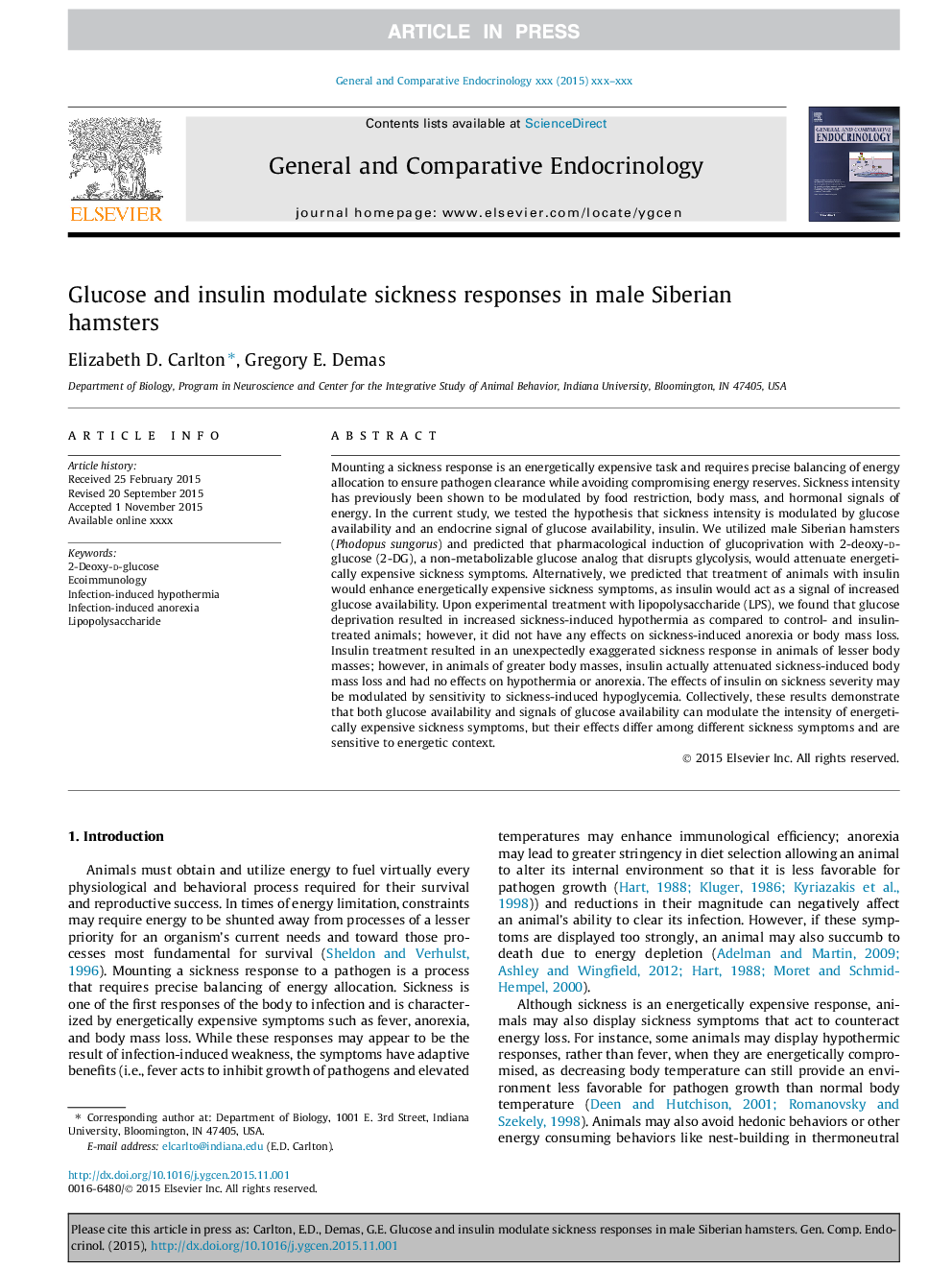| Article ID | Journal | Published Year | Pages | File Type |
|---|---|---|---|---|
| 5587853 | General and Comparative Endocrinology | 2017 | 9 Pages |
Abstract
Mounting a sickness response is an energetically expensive task and requires precise balancing of energy allocation to ensure pathogen clearance while avoiding compromising energy reserves. Sickness intensity has previously been shown to be modulated by food restriction, body mass, and hormonal signals of energy. In the current study, we tested the hypothesis that sickness intensity is modulated by glucose availability and an endocrine signal of glucose availability, insulin. We utilized male Siberian hamsters (Phodopus sungorus) and predicted that pharmacological induction of glucoprivation with 2-deoxy-d-glucose (2-DG), a non-metabolizable glucose analog that disrupts glycolysis, would attenuate energetically expensive sickness symptoms. Alternatively, we predicted that treatment of animals with insulin would enhance energetically expensive sickness symptoms, as insulin would act as a signal of increased glucose availability. Upon experimental treatment with lipopolysaccharide (LPS), we found that glucose deprivation resulted in increased sickness-induced hypothermia as compared to control- and insulin-treated animals; however, it did not have any effects on sickness-induced anorexia or body mass loss. Insulin treatment resulted in an unexpectedly exaggerated sickness response in animals of lesser body masses; however, in animals of greater body masses, insulin actually attenuated sickness-induced body mass loss and had no effects on hypothermia or anorexia. The effects of insulin on sickness severity may be modulated by sensitivity to sickness-induced hypoglycemia. Collectively, these results demonstrate that both glucose availability and signals of glucose availability can modulate the intensity of energetically expensive sickness symptoms, but their effects differ among different sickness symptoms and are sensitive to energetic context.
Related Topics
Life Sciences
Biochemistry, Genetics and Molecular Biology
Endocrinology
Authors
Elizabeth D. Carlton, Gregory E. Demas,
